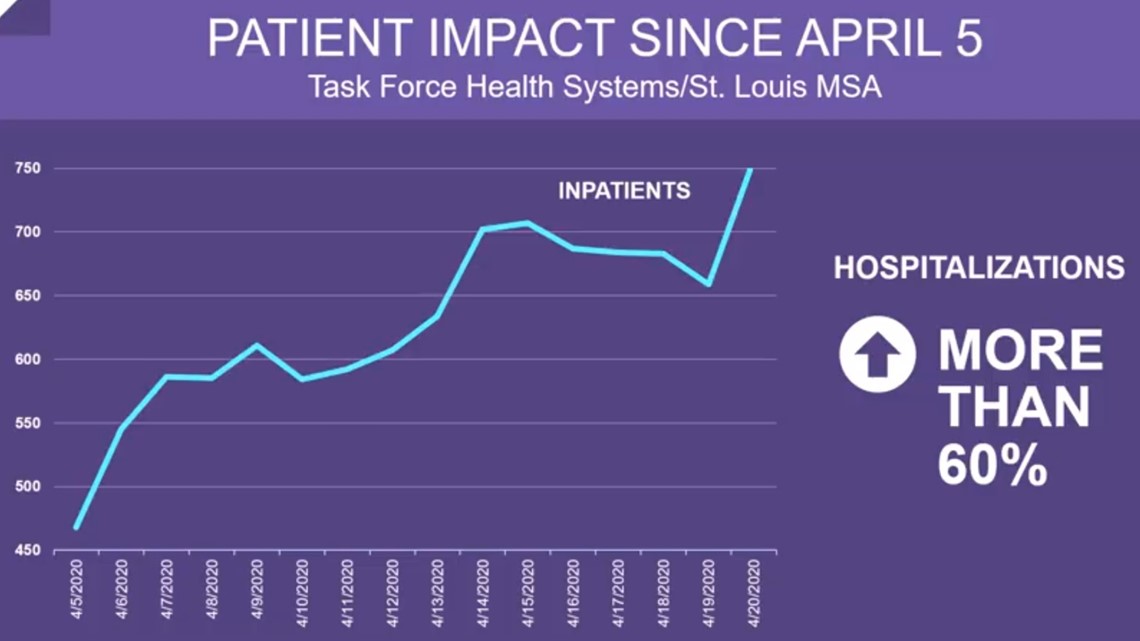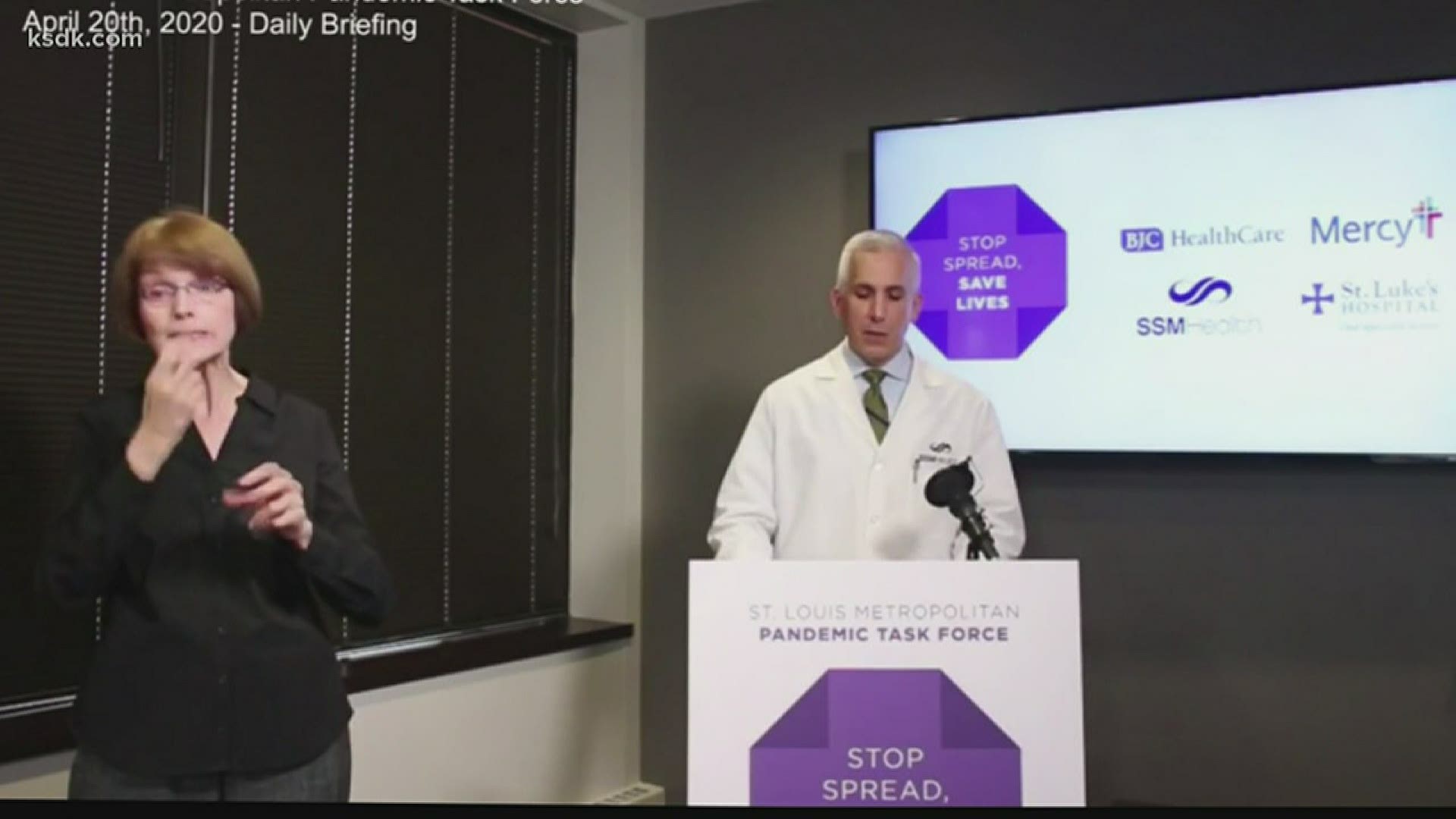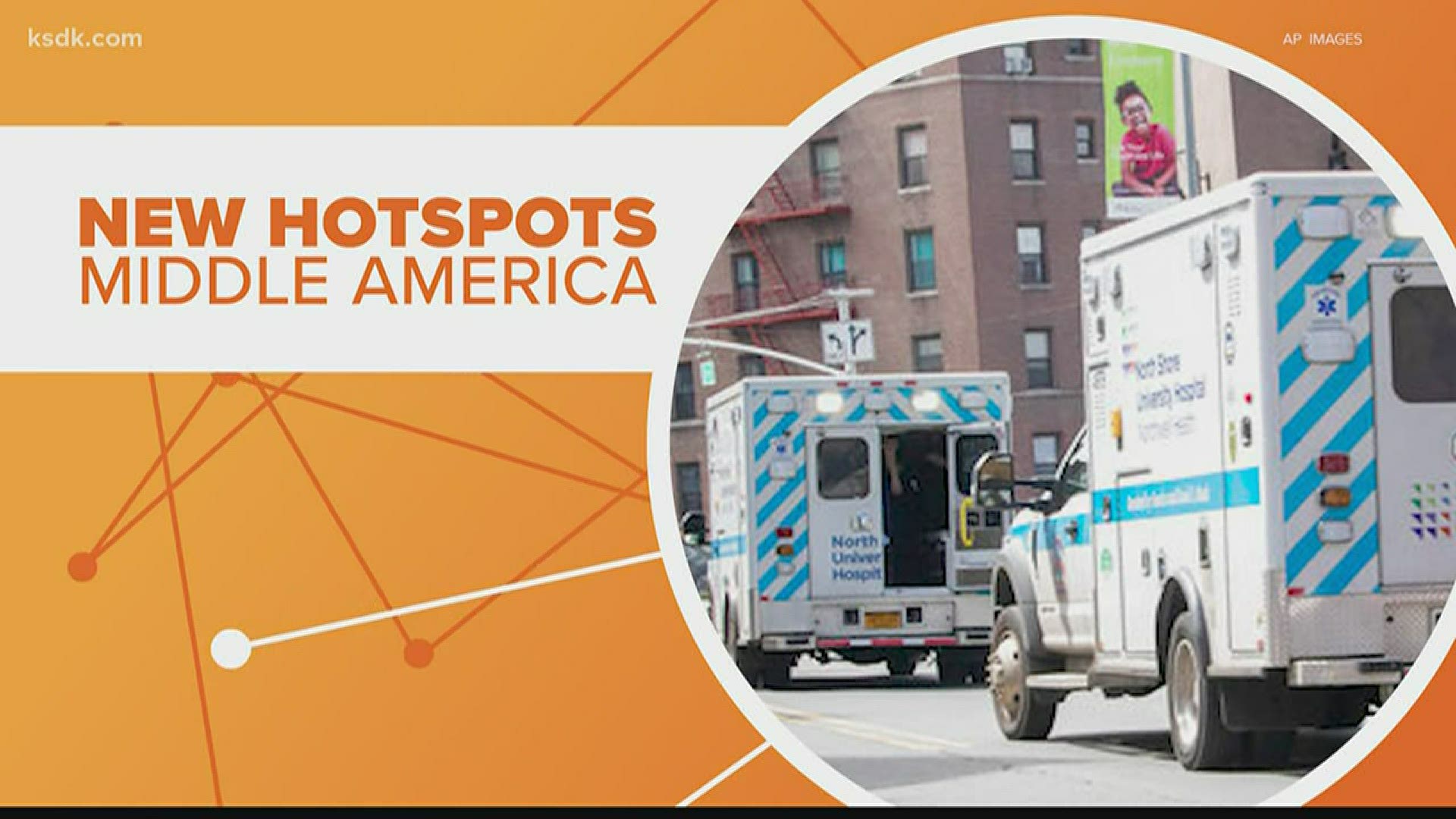ST. LOUIS — After a one-day dip in coronavirus patients at St. Louis area hospitals Sunday, there was a surge in cases Monday.
The St. Louis Metropolitan Pandemic Task Force reported a nearly 100-case increase of 659 patients Sunday to 757 patients Monday.
The number of people in the intensive care unit rose from 173 patients Sunday to 196 patients Monday, and the number of people on ventilators rose by three to 142.
Twenty-six COVID-19 patients were discharged from local hospitals Monday.
Still, Dr. Alex Garza — head of the task force — warned now is not the time to loosen social distancing restrictions.
"We’ve had some important progress in stopping the spread of the virus, but we still have quite a significant amount of people that are hospitalized,” Dr. Garza said, with a graph behind him showing the increase in coronavirus cases over the past two weeks.


The number of people in the hospital with the virus is up 60% from when the task force was formed. Monday's increase hospitalizations is one of the sharpest increases since the first day of daily briefings on April 6, when the number of hospitalizations jumped to 545.
“We continue to be on that steep part of the curve and our modeling has told us we are not quite at our peak dates yet,” Dr. Garza said.
Models run by the task force hospitals last week predicted the St. Louis area will hit a peak in hospitalizations on or around April 25, which is this Saturday. The peak for intensive care unit patients is slightly earlier from this Tuesday through Saturday.
Dr. Garza warned that once numbers do start to consistently decrease, it will be very gradual.
“This isn’t like a mountain peak; this is more of a gentle rolling hill. So, we’re going to see sustained numbers for a period of time before they really start decreasing,” he said Monday afternoon.
The task force doctor also addressed protesters who are expected to gather outside the state capitol in Jefferson City Tuesday, calling for an end to the stay-at-home order and reopening of local economies.
“The challenge is — as I’ve said multiple times — is opening too fast, too soon. The reasons for that are pretty clear and we’ve examples of this in the past, where if you move to open up the shelter in place and social distancing rules too fast you can actually create a second wave, which can be worse than the first wave,” Dr. Garza said.
He acknowledged the current situation is challenging but asked everyone to think of the broader picture.
“Decreasing the risk of transmission, which decreases the number of infections, which decreases the number of deaths,” Dr. Garza said.
RELATED: 'Undeniably the right thing to do' | Doctors applaud decisions to extend stay-at-home orders
He said one of the challenges Missouri faces before it can fully reopen is getting enough testing kits for “surveillance in the community.” He said medical professionals are fairly confident they have enough testing kits for diagnosing COVID-19 patients, but the state needs to increase the number of kits for surveillance.
“It’s that surveillance piece — which we need to be robust if we want to open up the economy — that we really need to bolster,” Dr. Garza said.
The latest data showed about 71,000 people in the Bi-state area could become infected with COVID-19 by the end of April. Dr. Garza previously said about 30% of those infected might not even know they have the virus and many others will have mild symptoms and won’t get tested.
Latest coronavirus headlines:
- Missouri Gov. Parson says he is 'cautiously optimistic' about health care system's capacity
- St. Louis area tops 4,000 cases as Missouri reports small increase in COVID-19 patients
- Illinois Gov. Pritzker says curve is bending, announces 'ramped up' testing at nursing homes
- St. Louis mayor says city expected to reach peak later this week, announces 2 new testing sites
- Missouri begins processing unemployment claims for self-employed workers


